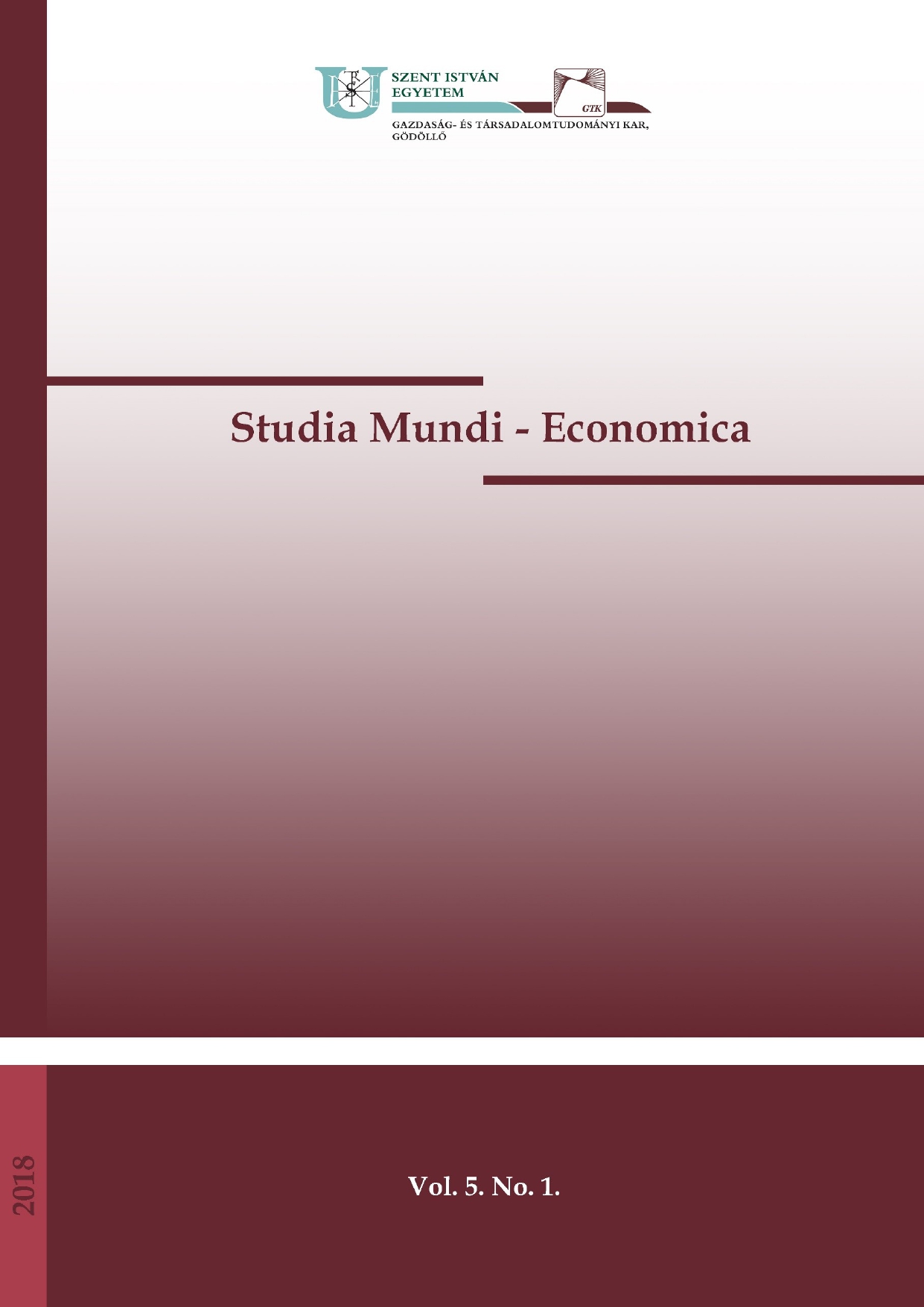Possible cooperations of players of local economy to boost the competitiveness of rural area
DOI:
https://doi.org/10.18531/Studia.Mundi.2018.05.01.24-32Keywords:
helyi gazdaságfejlesztés, versenyképesség, helyi szereplők, vidékfejlesztésAbstract
The aim of this study is to discover the ways how the local players can play a role in the complex development of rural – based on the Hungarian situation mainly disadvantaged – areas taking the 9 pillars of the rural security. Obviously, there is no such uniform strategic path or sample that could be applied for all the areas, since they got to the socio-economically disadvantaged situation in individual ways and due to various conditions. However, there are key factors whose development is inevitable to break out from this unfavourable status so that rurality would not be automatically equal to unfavourable situation. In Hungary, a lot of people live inthe countryside, thus helping the rural areas to catch up and to improve their competitiveness should be an unquestionable priority at national level.
References
Blakely, E.J. - Bradshaw, T.K. (2002): Planning local economic development: Theory and practice. 3rd edition. California. Sage Publications.
Cameron, G. - Danson, M. - Halkier, H. (2000): Institutional Change, Governance and Regional Development: Problems and Perspectives. 266-275. p. in: Danson, M. et al. (eds.) Governance, Institutional Change and Regional Development. Hampshire, Ashgate, Aldershot.
Espon (2006) Espon 2.3.2.: Governance of territorial and urban policies from EU to local level. http://www.espon.eu/mmp/online/website/content/projects/243/374/file_2186/draft_fr-2.3.2-full.pdf
Eurostat, http://ec.europa.eu/eurostat/data/database
International Labour Organization (ILO). 2006. A Local Economic Development Manual for China, ILO, Geneva
Káposzta. J. (2014): Területi különbségek kialakulásának főbb összefüggései, Gazdálkodás, 5. sz.
Meyer, D.F: Local Economic Development (LED), Challenges and Solutions: The Case of the Northern Free State Region, South Africa Mediterranean Journal of Social Sciences, Vol 5 No 16, http://www.mcser.org/journal/index.php/mjss/article/viewFile/3346/3300
Nemzeti Biztonsági Stratégia. http://2010-2014.kormany.hu/download/f/49/70000/1035_2012_korm_hatarozat.pdf
Nemzeti Vidékstratégia. http://videkstrategia.kormany.hu/
Plotajner, Z. – Mendes, I. (2004): Citizens Participation. - How to Improve Development on Local Level? 97-113. p in: Handbook with Best Practice Examples from South-East Europe. Friedrich Ebert Stiftung, Zagreb.
Puljiz, J. (2004): Economic Development. How to Improve Development on Local Level? 9-24. p in: Handbook with Best Practice Examples from South-East Europe. Friedrich Ebert Stiftung, Zagreb.
Reich, R. (1991): The work of nations. New York. Vintage.
Rodrigues–Pose, A. (2001): The role of ILO in implementing local economic development strategies in a globalized world. London School of Economics. Unpublished paper.
Rogerson, C.M. (2009): Strategic Review of local economic development in South Africa. Final report submitted to Minister S Shiceka of Department of Development Planning and Local Government (DPLG). Commissioned by DPLG and GTZ.
Szilágyi T., Boldizsár G.: (2016) A biztonságos vidék, mint az állam létfeltétele PRO SCIENTIA RURALIS 1:(4) pp. 24-34.
Trousdale, W. 2005. Promoting Local Economic Development through strategic Planning: The local Economic Development Series, Volumes 1 to 5. Nairobi. Kenya. UN-Habitat
Young, C. - Kaczmarek, S. (2000): Local government, local economic development and quality of life in Poland. GeoJournal 2-3. 225-234. p.
Downloads
Published
Issue
Section
License
Copyright (c) 2018 Nagy Henrietta

This work is licensed under a Creative Commons Attribution-NonCommercial-NoDerivatives 4.0 International License.
A folyóirat Open Access (Gold). Cikkeire a Creative Commons 4.0 standard licenc alábbi típusa vonatkozik: CC-BY-NC-ND-4.0. Ennek értelmében a mű szabadon másolható, terjeszthető, bemutatható és előadható, azonban nem használható fel kereskedelmi célokra (NC), továbbá nem módosítható és nem készíthető belőle átdolgozás, származékos mű (ND). A licenc alapján a szerző vagy a jogosult által meghatározott módon fel kell tüntetni a szerző nevét és a szerzői mű címét (BY).






